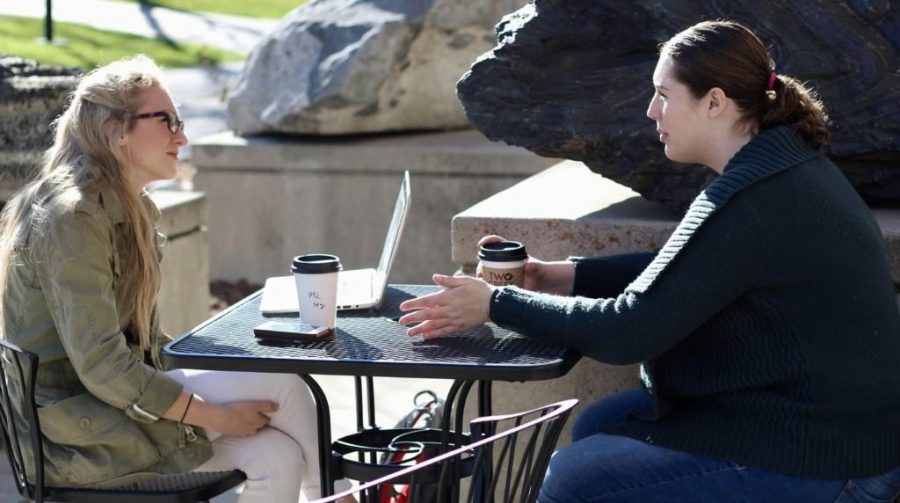Madeline MacDonald took on an institution.
MacDonald, now a University of Utah student, began her collegiate career at BYU where she was sexually assaulted leading to the uncovering of the gross mishandling of sexual assault cases institution-wide.
Following her assault in December of 2014, she approached the police and intended to press charges. She thought the process was going smoothly until she returned from the holiday break to find a complete communication freeze from both the BYU’s Title IX office and the police department.
Her attacker knew where she lived, following the “date gone wrong”, and so she feared for her safety as they wouldn’t tell her if he had been notified that she intended to file charges against him.
After many calls and emails they finally sent her a legal document, which after much dissecting she realized revealed the unethical relationship between the Honor Code Office and the Title IX Office.
She went to speak with the Title IX Director who admitted to the process of handing over the sexual assault report to the Honor Code Office. They cited it was because of the “ban on sex” and that many women have sex, feel regret and claim it was an assault on their campus.
They eventually dropped her case. Because Madeline had a good scholarship and friends at BYU, she decided to stay.
Around this time MacDonald spoke to her bishop, who told her she was “asking for it” and threatened to revoke her ecclesiastical endorsement because the night she was assaulted she had gone on a date with what she described as a “good Mormon boy” instead of attending family home evening. Removing her endorsement would have resulted in her immediate expulsion from the institution.
She noted that in the recent policies changes BYU released the “gaping loophole” involving bishops was not addressed.
Through all of the trauma she faced, the entire investigation ended mid-February 2015.
“There is a lot of victim blaming, slut shaming and ‘oh you’re impure now- how are you going to date a good Mormon boy?’” describes MacDonald.
She describes the struggle trying to reconcile this environment with her idea of BYU when she was growing up, waking up to her mom singing the fight song.
Last April, MacDonald met Madi Barney and they “realized not only are we not the only ones, [but] there is a pattern of abuse here at BYU. Since they do such a good job of isolating you and such a good job with the guilt that you start to believe it is your own fault you are being investigated.”
They reached out to numerous media outlets and had CNN flying out the following week. People who have had similar experiences at BYU for 20 years were reaching out to them. Their actions revealed the flawed and egregious acts BYU has been committing for decades.
MacDonald was pushed to transfer to the U upon discovering her roommates – who had sat with her through the police meetings and supported her previously – had filed reports to the honor code office saying they “had heard male voices and sounds like a belt being taken off from [her] bedroom” to which she responded “I’m not allowed to watch Netflix anymore?”
She learned of this through a federal records request and reached out to BYU, only to discover they were waiting until the first day of the Fall Semester to publicly expel her.
It was early August by the time this came to the surface, so she called every university she could think of. The U assigned her a personal Admissions Counselor. She applied and was accepted within two days.
She met with the administration and was set up with the victim advocates the first week of school, where they discussed the resources available to her.
Overall, she says that the environment at the U is more positive and people are more understanding, but we have work to do.
In light of the aggravated rape that occurred on October 31st at the Merrill Engineering parking lot, she had a number of concerns.
She was in the MEB at the time of the rape. As a student and a survivor, she has a lot of questions- “Why was there not a lockdown? Why did it take three or four hours for us to be told this was happening?”
As she put it, the U is “better than BYU, but still under investigation.”
One weakness of the U she cited is the counseling department. Compared to BYU, theirs is significantly more robust and services are free of charge.
Madeline MacDonald continues to be an activist and advocate for survivors, and her story is not over. There is talk of filing a class action lawsuit against BYU for their mishandling of sexual assault cases.
@zoekozlowski



Tom Fisher • Apr 2, 2019 at 12:29 am
So who is who in the picture above. The one on the left looks like Meryl Streep. I mean is this a made for TV movie about the incident or what?
Zachary Eritz • Jun 29, 2019 at 7:02 pm
That’s what you took from this article? You, Tom, have a problem.